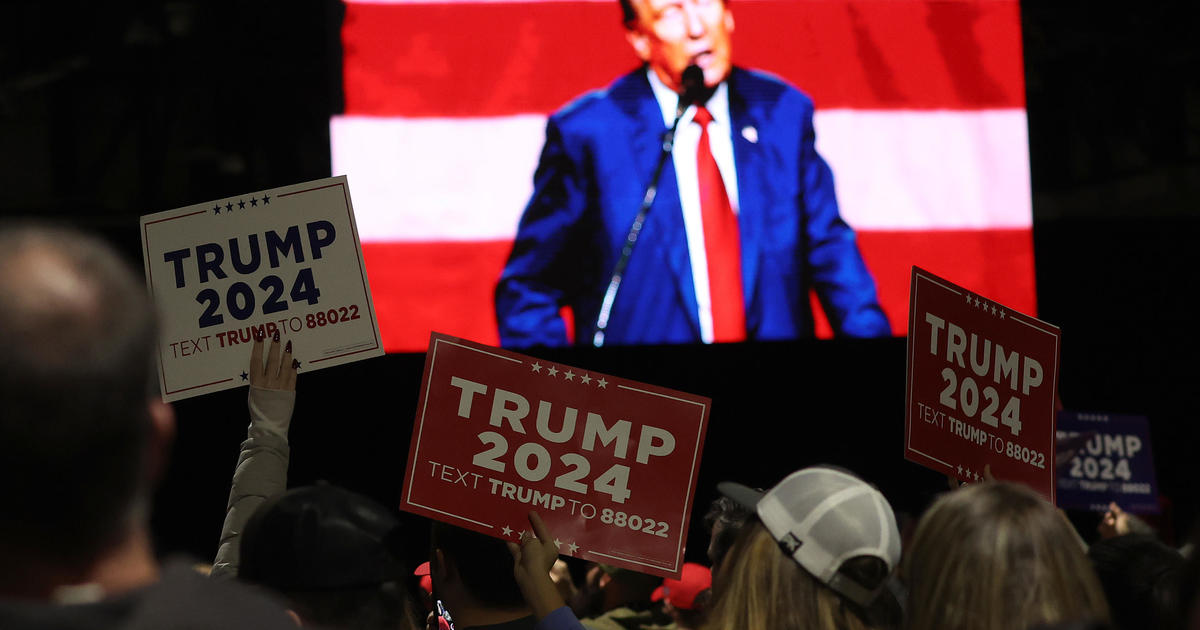
If states block Trump from the GOP primary ballot, can he still run for president?
CBSN
First, Colorado's Supreme Court ruled that former President Donald Trump wasn't eligible to run for his old job in that state. Then, Maine's Democratic secretary of state ruled the same for her state. "No person shall be a Senator or Representative in Congress, or elector of President and Vice-President, or hold any office, civil or military, under the United States, or under any State, who, having previously taken an oath, as a member of Congress, or as an officer of the United States, or as a member of any State legislature, or as an executive or judicial officer of any State, to support the Constitution of the United States, shall have engaged in insurrection or rebellion against the same, or given aid or comfort to the enemies thereof. But Congress may by a vote of two-thirds of each House, remove such disability."
Both decisions are historic. The Colorado court was the first court to apply to a presidential candidate a rarely used constitutional ban against those who "engaged in insurrection." Maine's secretary of state was the first top election official to unilaterally strike a presidential candidate from the ballot under that provision.
But both decisions are on hold while the legal process plays out, and there is increasing pressure on the U.S. Supreme Court to say clearly: Can Trump still run for president after the Jan. 6, 2021, attack on the U.S. Capitol?





















 Run 3 Space | Play Space Running Game
Run 3 Space | Play Space Running Game Traffic Jam 3D | Online Racing Game
Traffic Jam 3D | Online Racing Game Duck Hunt | Play Old Classic Game
Duck Hunt | Play Old Classic Game











